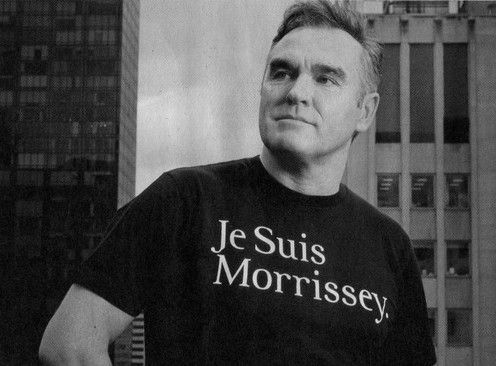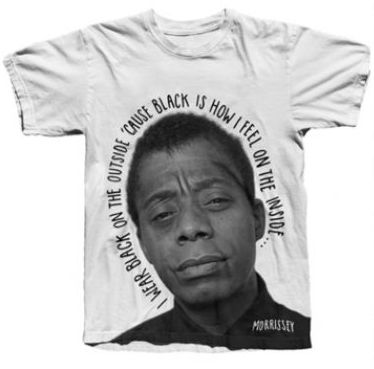ONLY NOISE: Kill Your Idols

Bob Dylan is finally going to accept his Nobel Prize…with a taped lecture. Ed Sheeran is losing his “nice guy” status and getting called out as a blatant misogynist. Even in death, Chuck Berry can’t escape his reputation as a scat-loving pederast.
We listen to them. We love them. We live for what they do. Hell, I make my wages writing about them. But let’s face it: musicians can be massive assholes.
Entering adulthood, we all experience the humanizing of our parents. The great gods of early childhood, those people who said that yes, you could watch Beavis and Butthead, but, no, you could not watch Pulp Fiction; those adults who taught you “right” from “wrong” and “cooking sherry” from “sipping sherry” – they are just people. As we age, their humanity – with all its foibles – comes into better focus, and we forgive them as they relinquish their post on the pedestal.
So if we’re able to endure the humbling of our own parents, why are we so devastated by the mortal trappings of the famous? Furthermore: why do we put rock stars on a pedestal to begin with?
Because: Fandom. That temporary (or life-long) insanity that made teenagers convulse for four mop-topped Brits, and grown women sexualize teen Bieber.
I was thinking about the word “fan,” which I suspect is connected to the word “fanatic” etymologically. And sure enough, my Googles confirm that “fan” is in fact, “a late 19th century abbreviation of fanatic.”
And what about “fanatic”?
“…The adjective originally described behavior or speech that might result from possession by a god or demon…”
We’re not Beliebers. We’re possessed by demons. In truth, a lot of fan-related content surrounding Bieber does resemble Pentecostal seizures.
But there is a difference between being a fan and a demon-possessed Belieber – right? Perhaps that gap is smaller than we assume.
I’d like to think of myself as someone who is rationally distanced from celebrity gossip, and for the most part I steer clear of tabloid rags – but what do you do when it’s your favorite artist under fire, and for good reason? You feel the pain of betrayal. Like when Mariah lip synched her way through New Year’s Eve.
A couple of months ago the erudite and envelope-pushing Brian Eno released his ambient record Reflections. It was but another stroke of brilliance from a man who’s had a seismic impact on most of the music I love – as both a producer and an innovator. My adoration for Brian Eno (or, as I referred to him in my head alone, Bri-Bri Eno) reached its zenith in 2015, when he delivered the distinguished BBC Music John Peel Lecture. His voice: so soothing. His scalp: so shiny. He even (kind of) made jokes! I had what you could call a serious brain crush on Bri-Bri Eno. There was a calm wisdom emanating from him at all times; a breed of serenity mirrored in his ambient soundscapes.
And then. Reporter Simon Hattenstone ran an interview with Eno in The Guardian that changed my perception of the artist forever. What began as a genial convo about art turned into sizzling vitriol spouting from the mouth of an unmannered diva. After merely asking a question about the history of Eno’s bizarre, long-winded full name (Brian Peter George St John le Baptiste de la Salle Eno), Hattenstone was met with outrage from the artist: “God, are we going to do any interesting questions? This is all bollocks. I’m not fucking interested at all in me. I want to talk about ideas. Can we do any of that?”
Rude. From then on the interview oscillated between forced diplomacy and whacky, insolent outbursts from Eno. Hattenstone kept his composure throughout, and rather eloquently defended himself against Brian Meano.
I was in shock. On the one hand, I felt a sense of solidarity with a music journalist just trying to do his job in the presence of a genius. On the other hand I was an enormous fan of Eno’s; a crushed fan who couldn’t believe that one of my favorite artists was, well, a belittling asshole. Of course that appraisal isn’t entirely merited by one messy interview, but my reaction was. The one-sided contract between the fan and the famous had been breached; he’d shown his toothy, human side – and I didn’t want to see it.
This must be a common phenomenon. The fall of icons. That crazy sense of betrayal we feel when someone we have never met does something we can’t stand. But is the Judas effect any more bonkers than the fact that we allowed ourselves to fall in love with a famous stranger to begin with? Probably not.
Any fan of Morrissey knows treachery well. A charming man indeed: his sex appeal, sensitivity, and bookishness (those glasses) made people crazy for decades. I mean, when I was 20, I waltzed into a salon and told them, “I want Morrissey hair.”
But what a dick?! This is the man who screwed his hardworking Smith-mates out of large sums of money, called the Chinese people a “subspecies,” and more recently issued a t-shirt with James Baldwin on the front reading: “I wear black on the outside ‘cause black is how I feel on the inside…” And then there is “Morrissey” written on the bottom left – smack on Baldwin’s shoulder.
No. Just no.
I wondered if I was the only sad bastard who actually felt hurt by rock star fuck-ups. It’s an absurd dilemma – but a real one nonetheless.
A favorite example came from fellow music journalist Allison Hussey, who covered a Sun Kil Moon gig for Indy Week in 2014. Like a good, I don’t know, journalist, Hussey reported the truth, which was sadly that SKM frontman Mark Kozelek was an insufferable prick the entire set. Hussey, of course, used far kinder words in her recap, stating that, “because the show was at the Lincoln Theatre, people were chatty, as all Lincoln Theatre crowds will be. Kozelek was displeased with this, and let the crowd know it by demanding that the ‘fucking hillbillies’ shut the fuck up before he’d strum a single note.”
Instead of ignoring an unflattering review like most artists do, Kozelek then “wrote a song about me where he called me a bitch,” Hussey recounts. “It was…an interesting roller coaster.”
Even my dad had a tale of rock star boorishness, though his was not of a beloved musician, per se. My dad has spent most of his life working in the music industry, whether as a record store owner, a musician, or a pro audio salesman. During the latter vocation, he crossed paths with a certain Guns N’ Roses guitarist.
“Slash was a total egotistic d-bag,” he relayed. “Spent an entire afternoon around him at a music show in Ventura, California around ’88 or ’89. He pranced around and acted like he was King, and everyone else were serfs.”
Ok, so Slash being a douchebag isn’t exactly breaking news, but you always hope that in the face of all odds, he might deflect his own stereotype.
In all of my crowdsourcing for quotes about artist meet-and-greets gone wrong, there were tales of Joe Jackson being “cheap and pompous” to a server, a comment about Puddle of Mudd’s Wesley Scantlin being a “jerk,” (shocker) and damnations of Madonna. But amongst the slew of dirt, one friend piped up to say that, “all the [fusion_builder_container hundred_percent=”yes” overflow=”visible”][fusion_builder_row][fusion_builder_column type=”1_1″ background_position=”left top” background_color=”” border_size=”” border_color=”” border_style=”solid” spacing=”yes” background_image=”” background_repeat=”no-repeat” padding=”” margin_top=”0px” margin_bottom=”0px” class=”” id=”” animation_type=”” animation_speed=”0.3″ animation_direction=”left” hide_on_mobile=”no” center_content=”no” min_height=”none”][musicians] I’ve met were very nice, especially Ric Ocasek.”
So I guess there’s hope, after all.
[/fusion_builder_column][/fusion_builder_row][/fusion_builder_container]


